Jiamoni, Kenya-the story of a 72-hour coffee bean wash
Professional coffee knowledge exchange more coffee bean information please follow the coffee workshop (Wechat official account cafe_style)
[Kenya Jiamoni exquisite 72-hour washing]
Country: Kenya
Region: Kirinyaga, Kirinaga
Altitude: 1700 to 1800 m
Soil: volcanic soil
Variety: sl-28,sl-34
Treatment: 72 hours washing

01 | introduction of the processing plant
The Kiangombe factory is 2km from the town of Kimunye in Kirinaga, named after the Kikuyu, Kenya's largest minority group, because there was a large dairy market in the village in the early days.
The Kiangombe factory was built in 1998 and belongs to the Karabe cooperative. The cooperative has more than 6, 000 members, of which the Kiangombe factory is registered with more than 600 small farmers.
The water source for washing treatment at the Kiangombe plant comes from the Mukengeria River, which is then dried on a raised tanning bed for about 20 days according to weather conditions.

02 | production area description
Kirinaga Kirinyaga
Kirinyaga is located on the hillside of Mount Kenya, near Nyeri, famous for its strong flavor, rich layers and solid taste of coffee, and Nyeri is recognized as the two best producing areas in Kenya. Most of the producers in this area are small coffee farmers who join the cooperative, while the cooperative plays an integrated role in providing washing plants, while coffee farmers send coffee cherries to the co-operative's processing plant for raw bean processing.

"Kirinaga". It is the name of Mount Mount Kenya, the highest mountain in Kenya and the second highest in Africa. It is also the local name of Mount Kenya.
The reason why Europeans call it "Mount Kenya" is said to be unable to imitate the local pronunciation "kirinyaga" very well.
Kirinyaga comes from the Kikuyu, which means "white mountain" and is thought to be the place of the gods. The Kikuyu are the most populous people in Kenya, accounting for 1/5 of the total population.
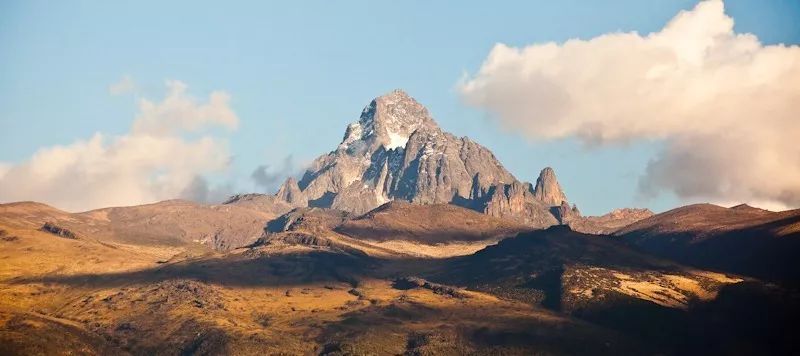
03 | Analysis of raw beans
SL-28 and SL-34 are the two most respected varieties produced by the Scott laboratory in Kenya in the 1930s. The Scott Laboratory no longer exists, but it is now the National Agricultural Laboratory and part of the Kenyan Agricultural and Animal Husbandry Research Organization. Both varieties are derived from bourbon.

Although it comes from a different pedigree: SL-28 was developed from drought-resistant varieties originally grown in Tanganyika, which is part of modern Tanzania; it is generally considered to be of the highest quality, but its yield is low compared to other commercial Arabica varieties. SL-34 is a variety originally found near Kabete and performs well at low elevations. Both SL variants showed bronze tender leaves.
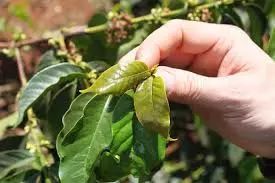
04 | introduction to the handling method
Kenyan water washing is a cyclic repeated treatment after fermentation. On the day of harvest, the best quality coffee cherries are selected, peeled and fermented. The fermentation time is 24 hours, and then washed with clean river water after 24 hours. Then, it is fermented again with clean river water for 24 hours, and then washed, so it is repeated 3 times for 72 hours, so it is called Kenyan 72-hour fermentation water washing treatment, referred to as K72. This treatment allows coffee beans to ferment for a long time at low temperature, so that beans can have a brighter, cleaner but full flavor!

05 | Baking analysis
This full-bodied Kenyan coffee, due to its high altitude and hard beans, climbed at a higher temperature at first, turned yellow in about 5 minutes, then reduced its firepower into the Mena reaction, and then decreased its firepower again to lengthen the Mena reaction time at 168C.
When the first burst begins, it is highly endothermic, so it is recommended to maintain heat at this stage to prevent stagnation. The development of first explosion takes more time, which is helpful to reduce acidity and develop flavor.

Roaster Yangjia 600g semi-direct fire
The furnace temperature is preheated to 200 degrees into the boiler, the throttle is opened at 3J30s, the firepower is adjusted to 140, the throttle is unchanged, the temperature return point is 1`28``, keep the firepower, 4`50` turn yellow, the smell of grass disappears, enter the dehydration stage, the firepower is lowered to 110, the throttle is opened to 4.
7` dehydration is over, firepower is reduced to 80, 7`30 is the appearance of wrinkles and black markings on the bean table, and the smell of toast turns to coffee, which is a prelude to an explosion, so pay attention to the sound of explosion. When it starts to explode at 8`10`, the throttle door is all open. After an explosion, the development time is 2 minutes, when the firepower is reduced to 50 at 188 degrees, the temperature is flattened, and the pot is put into the pot at 193 degrees.

This is a classic Kenyan coffee with wet aromas of ripe tomatoes and flowers, imported virgin fruit and apricot flavors, bright acidity, clean palate, medium body, medium almond flavor, juicy, raspberry and caramel finish, and orange aromas.
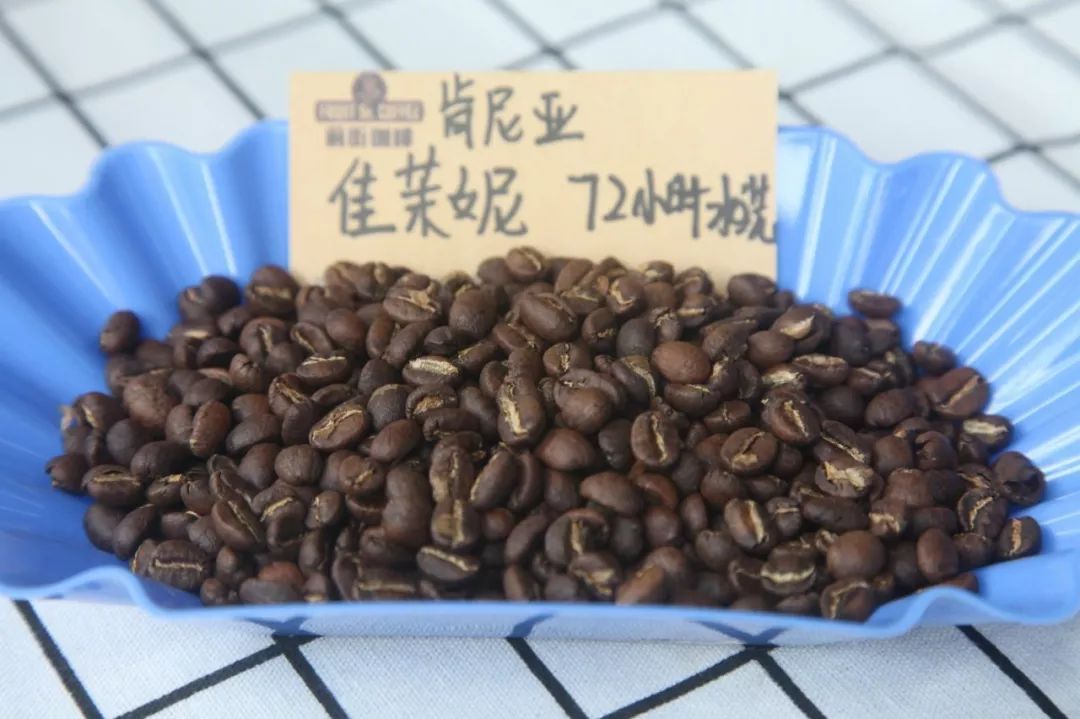
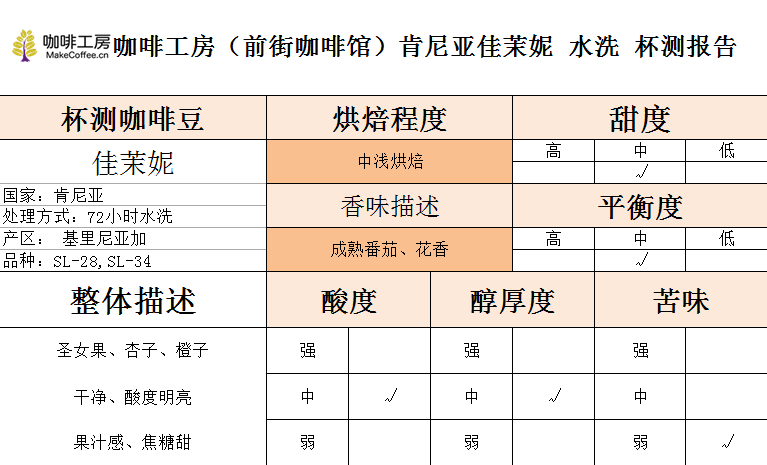
06 | Cooking data
Recommended cooking methods: siphon, hand flushing
Degree of grinding: 3.5 (Fuji R440, Japan)
Water temperature: 91 °C

V60 filter cup, 15g powder, water temperature 90-91 degrees, grinding 3.5.The ratio of water to powder is close to 1:15
Steaming in 30 grams of water for 30 seconds
Segment: water injection to 120ml cut off, slow water injection to 225ml
That is, 30-120-75
Other suggestions for trickling extraction:
Normal pressure, recommended grinding degree of 3.5-4 / water temperature 90 °C
Philharmonic pressure, recommended 2.5 grinding degree, water temperature 90 °C
Hand punch: 3.5 degree of grinding, water temperature 91 °C
3.5 Grinding-90 degrees water temperature
Bean grinder
Grinding degree
Powder quantity
Filter cup
Little Fuji
3.5
15g
V60
Water temperature
Stuffy steam
The second stage of water quantity
The third stage of water quantity
Total time 1:50
91 degrees
30g water for 30s
120g 1:00
75g
Total amount of water: 225
Sweetness: ☆☆☆☆

Share the learning results with everyone and the industry.
Important Notice :
前街咖啡 FrontStreet Coffee has moved to new addredd:
FrontStreet Coffee Address: 315,Donghua East Road,GuangZhou
Tel:020 38364473
- Prev
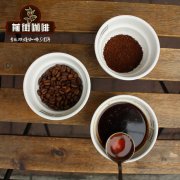
What chemical reaction changes will take place during the roasting process of coffee beans? What happened to the roasting of coffee beans
Professional coffee knowledge exchange more coffee bean information please follow the coffee workshop (Wechat official account cafe_style) coffee beans in the roasting process what chemical reactions will take place? What happened to the roasting of coffee beans? Sucrose: melting point 187.8 ℃-sugar? The conjugate = caramelization-water CO2 escapes to produce an explosive First Crack phenomenon. I measured the bean temperature 190 in the drum bean of the baking machine.
- Next
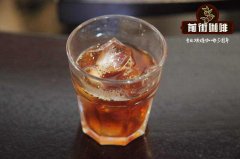
What is the chemical reaction in the roasting process of coffee beans? What is the thermal decomposition reaction of coffee beans during roasting
Professional coffee knowledge exchange more coffee bean information please follow the coffee workshop (Wechat official account cafe_style) what are the chemical reactions in the roasting process of coffee beans? What is the thermal decomposition reaction of coffee beans during roasting? After roasting at high temperature, coffee beans will produce a variety of charming aromas and flavors, mainly because of the chemical reactions that take place inside the beans during roasting.
Related
- Detailed explanation of Jadeite planting Land in Panamanian Jadeite Manor introduction to the grading system of Jadeite competitive bidding, Red bid, Green bid and Rose Summer
- Story of Coffee planting in Brenka region of Costa Rica Stonehenge Manor anaerobic heavy honey treatment of flavor mouth
- What's on the barrel of Blue Mountain Coffee beans?
- Can American coffee also pull flowers? How to use hot American style to pull out a good-looking pattern?
- Can you make a cold extract with coffee beans? What is the right proportion for cold-extracted coffee formula?
- Indonesian PWN Gold Mandrine Coffee Origin Features Flavor How to Chong? Mandolin coffee is American.
- A brief introduction to the flavor characteristics of Brazilian yellow bourbon coffee beans
- What is the effect of different water quality on the flavor of cold-extracted coffee? What kind of water is best for brewing coffee?
- Why do you think of Rose Summer whenever you mention Panamanian coffee?
- Introduction to the characteristics of authentic blue mountain coffee bean producing areas? What is the CIB Coffee Authority in Jamaica?

